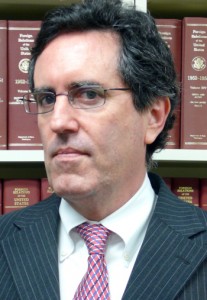
WHITE HOUSE SETS NEW GOALS FOR OPEN GOVERNMENT
In a new Open Government National Action Plan that was released today, the White House affirmed its support for open government values, and set an agenda for the remainder of the current Administration.
“The new plan includes a wide range of actions the Administration will take over the next two years, including commitments that build upon past successes as well as several new initiatives,” the Plan stated. “The Administration will work with the public and civil society organizations to implement each of these commitments over the next two years.”
With respect to national security secrecy, the Plan includes a new commitment to “transform the security classification system” based on the principle that “classification must… be kept to the minimum required to meet national security needs….”
Towards that end, a new interagency Classification Review Committee is being established with White House leadership to evaluate proposals for classification reform, and to coordinate their implementation throughout the executive branch. The creation of such a body was the primary recommendation of the Public Interest Declassification Board last year, and it was strongly endorsed by public interest groups.
Both because of its interagency character and especially due to its White House leadership, the new Committee has the potential to overcome the autonomous classification practices of individual agencies that have contributed to the explosive growth in secrecy.
Positive results are naturally not guaranteed. The Administration has not embraced an explicit theory of how overclassification occurs, or even how overclassification is to be defined, and therefore it is not yet well-equipped to address the problem.
The new Plan notes that in June of this year President Obama directed the Intelligence Community to declassify and make public “as much information as possible” about intelligence surveillance programs. But in an optimally functioning classification system, the President's directive would have been redundant and unnecessary; the system would already be declassifying as much information as possible.
Of course, the existing classification system is not functioning optimally. That is the problem. So either the President needs to issue individualized directives to all agencies on every conceivable classified topic to “declassify as much as possible,” or else the new White House interagency Committee needs to find alternate means to effectively communicate the same imperative.
“The Obama Administration remains fully committed to building a 21st-Century Open Government and fundamentally improving the relationship between citizens and government,” the new Plan said.
Not everyone has gotten that message, though. The Central Intelligence Agency is determined to cut off public access to foreign news reports and translations gathered through its Open Source Center (formerly the Foreign Broadcast Information Service) and marketed to subscribers through the NTIS World News Connection. At the end of this month, this legendary resource will cease to be available to the public after more than half a century. (“CIA Halts Public Access to Open Source Service,” Secrecy News, October 8).
A CIA official suggested that anyone who is interested in foreign news can “use the internet” instead.



